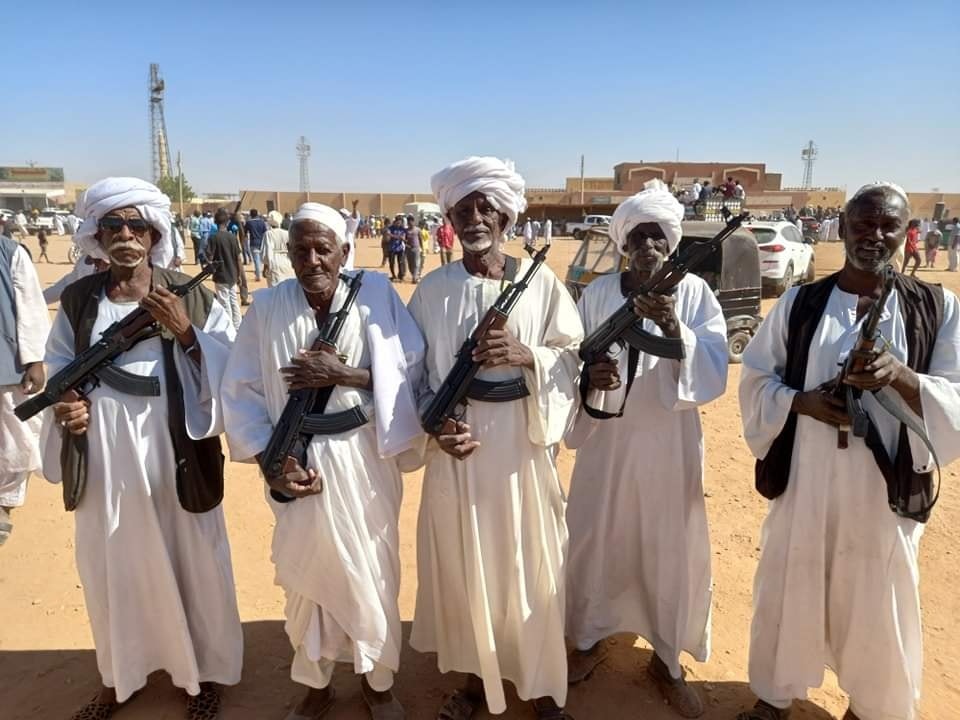
War Sustainability as an End in Itself!
Abdullah Rizk Abou Seemazah
War advocates have embarked on creating a new path for its sustainability, as an end in itself, as the latest twist in its developments, by fueling it with hate speech, tribal mobilization, and arming civilians under the guise of popular resistance.
This development occurs in the context of two significant changes. Firstly, the clear position of the army leadership, represented by General Abdel Fattah al-Burhan and his deputy General Shams al-Din Kabbashi, regarding their engagement in the negotiation process for a peaceful cessation of the war. While al-Burhan hinted at his willingness to meet with Hemeti in Entebbe during a speech to the army in the Red Sea, aligning with his commitments at the IGAD summit on Sudan hosted by Djibouti recently, Kabbashi revealed the resumption of negotiations between the army and the Rapid Support Forces at the Jeddah platform.
The second change lies in the armys withdrawal from civilian areas and avoiding confrontation with the Rapid Support Forces. Although this is not the first of its kind in the course of the war, it is the latest and most intense reaction, especially within the war advocates camp, including Islamists and remnants of the ousted regime.
The withdrawal decision, executed in several strategic locations in the western part of the country, implies an implicit rejection of continuing the war, regardless of the direct reasons for this decision. On the other hand, it signifies a tactical or strategic retreat from the option of military decisiveness in the battle, requiring a shift from a defensive to an offensive stance. This is the option adopted by Islamists and remnants. Thus, the other side of the incident in civilian reveals the failure of Islamists and remnants to rely on the army to achieve their goals, especially their return to power.
Aware that the popular resistance, initiated to compensate for this loss, will not be able to achieve what professional fighters failed to achieve in over eight months. The militia project will only be an additional means to prolong the war for the sake of war, nothing more.
In the northern and eastern states, where war advocates, Islamists, and remnants are active, sponsored by the state authorities, tribal, ethnic, and regional banners lead the calls to expand the war. They aim to turn it into a comprehensive civil war, akin to the Rwandan War of 1994. Meanwhile, hate speech against other population groups intensifies, labeling them as conspirators, fifth columns, and sleeper cells. The heightened state of alert accompanies arrest campaigns in some states and sometimes involves physical liquidation of suspects, according to social media reports.
This furious campaign, targeting on the distant horizon, seeks to thwart any attempt to end the war, met with widespread and escalating rejection by the vibrant forces in society. In the Northern State and the River Nile State, a wave of rejection is rising against the endeavors of the remnants of the ousted regime to involve the sons of the two states in a war that has neither elegance nor beauty for them.
While many tribal entities, finding their names dragged into this quagmire, distanced themselves from these calls, considering them condemned, the "Baja Conference urged the citizens of East Sudan to reject and boycott the mobilization and alert campaigns," deeming them, according to Radio Dabanga, "a threat to the security of the East Sudan region." It viewed such calls advocating carrying arms as "providing justifications for the expansion of the war eastward."

